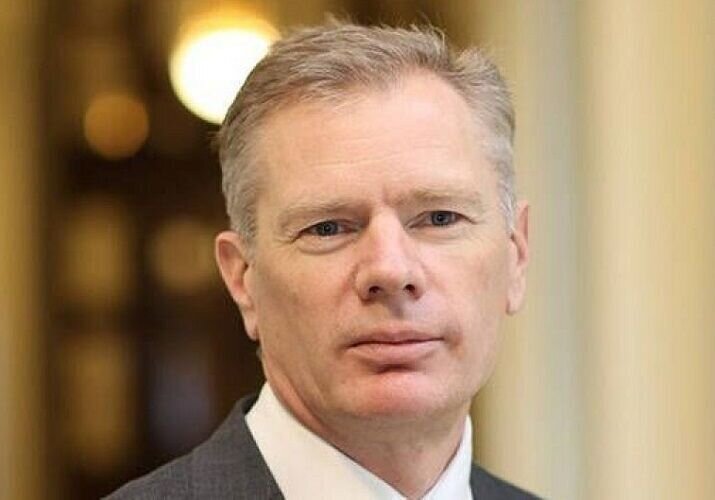London will remain committed to nuclear deal: diplomat

TEHRAN - British Ambassador to Tehran Rob Macaire has said that London will remain committed to the 2015 nuclear deal, formally known as the JCPOA, even if it exits the European Union.
“There are many challenges, however, we will be committed to the JCPOA even when we exit the European Union,” he said in a video message posted on his Twitter account on Monday.
He also said, “Recently, I had the honor to host a delegation of high ranking British nuclear experts. This delegation achieved good advances in line with modernizing the Arak nuclear reactor.”
He said this nuclear cooperation is a benefit of the JCPOA.
“China and Britain have gathered around some of best nuclear experts in the world including Professor Robin Grimes,” he added.
Macaire noted that Britain supports Iran’s plans to build an advanced non-military nuclear reactor in order to conduct medical and industrial researches.
“This project is an example of things we do to assure that Britain is still working (even) after the United States’ withdrawal [from the JCPOA],” he said.
He added, “At first, the United States and China guided this project and now we have replaced the United States to continue the project.”
British and Chinese nuclear teams visited Iran in October and discussed the redesigning and upgrading of the Arak heavy water reactor.
On October 14, Macaire tweeted, “Civil #Nuclear cooperation is an important benefit that #Iran receives under the #JCPOA. Delighted to welcome Professor @RobinWGrimes along with UK and Chinese delegations to Tehran for technical talks on the #Arak modernisation project.”
Reportedly, a statement issued by the British embassy in Tehran said, “We are upholding our obligations to cooperate with Tehran on modernizing Arak facility.”
The statement added that the 3-day visit to Iran by British experts “forms part of our commitment to ensuring that the Joint Comprehensive Plan of Action (JCPOA) provides benefits for both Iran and the wider international community.”
U.S. President Donald Trump abandoned the deal in May 2018 and returned sanctions and imposed new harsh ones.
On May 8, exactly one year after the U.S. abandoned the deal, Tehran began to partially reduce its commitments to the agreement at bi-monthly intervals.
In the first stage, Iran announced that it will not limit its stockpile of the nuclear fuel to 300 kilograms allowed under the deal. However, on that date (May 8) Iran’s Supreme National Security Council (SNSC) said if the remaining parties to the JCPOA, especially Europeans, devise a mechanism to protect Iran from the sanctions' effect in the two-month deadline it will reverse its decision.
But since European parties missed the deadline, on July 7 Iran announced that it has started enriching uranium to a higher purity than the 3.67%, thereby starting the second step.
Again, as Europe missed the second 60-day deadline, Iran moved to take the third step, removing a ban on nuclear research and development (R&D).
Mahmoud Vaezi, the presidential chief of staff, told reporters on October 23 that Iran will take fourth step to reduce commitments under the JCPOA if no concrete action is taken by the remaining parties to protect Iran from the U.S. sanctions.
NA/PA
Leave a Comment